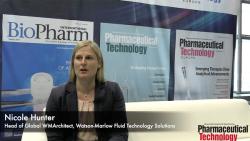
OR WAIT null SECS
- About Us
- Advertise
- Contact Us
- Editorial Info
- Editorial Contacts
- Editorial Advisory Board
- Do Not Sell My Personal Information
- Privacy Policy
- Terms and Conditions
© 2024 MJH Life Sciences™ and Pharmaceutical Technology. All rights reserved.
Report from: Europe
Although industry is tightening its belt, contract manufacturers across Europe are actually making out quite well by taking on additional projects and new roles.
Contract manufacturers in Europe are benefiting from the pharmaceutical industry's acceleration of production reorganization. In an effort to streamline active pharmaceutical ingredient (API) and finished-product manufacturing, large multinational pharmaceutical players are closing down redundant plants and, in many cases, selling facilities to growing contract manufacturers. The contractors, in turn, are establishing themselves as a new class of specialized producers of APIs and dosage-form drugs, working in close partnership with both big and small pharmaceutical companies.
DARRYL LENIUK/GETTY IMAGES
"The pharmaceutical industry is increasingly outsourcing its API business to custom manufacturers in order to cut costs," says Wolfgang Schmitz, chief executive of Saltigo, the fine chemicals unit of Lanxess in Leverkusen, Germany. "We can win new customers as well as increase capacities for existing companies by offering innovative product mixes and the latest technologies, as well as ensuring high quality and safety standards."
Among the main drivers behind plant closures and divestments by pharmaceutical companies is a hike in the number of drugs coming off patent. In the British Isles, for example, GlaxoSmithKline (GSK, London) is closing capacity in England for its epilepsy drug "Lamictal" (lamotrigine ) and herpes treatment "Valtrex" (valacyclovir), both of which have recently or are about to come off patent. In addition, there is a desire among global firms to have a stronger presence in the emerging markets of Asia, Latin America, and Eastern Europe.
"We're number 2 worldwide with a 6% share of the global pharma market, but in the emerging markets of Brazil, Russia, India, and China (BRIC), we have only 1.4%," said David Jones, GSK's senior vice-president for human resources, global manufacturing and supply, at an early March press briefing. "We have to change the whole dynamics of our business. We'll have to produce more outside Europe and North America in Asia and elsewhere where manufacturing is less expensive."
One-third of GSK's 30,000-plus workforce operates out of the United Kingdom. In the second half of 2008, the company announced the closure of two plants in southeast England, affecting more than 1000 employees. The company's expenditure on outsourcing of APIs, intermediates, finished products, and packaging now amounts to 55% of the £3.6 billion ($5.1 billion) spent on manufacturing annually.
AstraZeneca (London), the UK's second largest pharmaceutical company behind GSK, is focusing on formulation and packaging after announcing in 2007 that it intends increase outsourcing of its APIs.
"We will continue to do formulations and packaging because they are areas close to the patient," says a spokesperson for AstraZeneca, which in January revealed that by 2013, it would be cutting approximately 20% of its global workforce or 15,000 jobs, many of them in manufacturing. "In fact, in packaging in Europe, we are bringing some activities back in house as part of a regionalization process."
The company has forged close ties and even partnerships with several contract manufacturers across Europe. One of these is the fast-growing Recipharm (Basel), which now has nine plants in Europe, all of them purchased from pharmaceutical companies, four from AstraZeneca.
"We've been following the classic model of acquiring plants and then doing a contract manufacturing deal with the vendor for the existing output while using the facility to gain other business from elsewhere," explains Mark Quick, Recipharm's vice-president of corporate development. "We see potential this year for acquisitions from our leveraged competitors in contract manufacturing because we have cash in the bank."
Recipharm is positioning itself as a full-service player able to satisfy the needs of pharmaceutical companies from development to commercialization. "We're taking over plants from the large pharma companies in order to meet the requirement of smaller ones wanting help with the development and manufacture of their products," says Quick.
Contract manufacturer Hovione, a Portuguese-based API development and manufacturing specialist, has made one of its biggest expansion moves in recent years with the acquisition in November of Pfizer's API plant for Lipitor (atorvastatin) at Loughbeg, Cork, Ireland.
"Pfizer offered us an agreement for the supply of Lipitor APIs from the plant, but we declined it," says Guy Vilax, Hovione's chief executive. "It's a high quality facility, and we want it to be a center for new API development and manufacture.
"I think it is clear that the pharma industry is under very severe pressure and that its operating model will have to change quite dramatically with the obvious trend being a desegregation of the three key elements of discovery, sales and marketing and manufacture," he continues. "We're now entering the era of the specialist pharmaceutical manufacturer who will be able to handle everything from clinical trial quantities to bulk production."
The best-placed contract manufacturers in Europe are likely to be those who are active in biopharmaceuticals, potentially the fastest growing segment for outsourcing and medicinal chemicals. Leading contract manufacturer Lonza (Basel) reported a 9% rise in exclusive synthesis and biopharmaceutical sales last year, but much of that growth came from the chemicals side. On the other hand, the Swiss company clinched during the year long-term biological manufacturing deals with Novartis (Basel) and Israel's Teva Pharmaceutical Industries. In the coming years, contract manufacturers will need to be able to offset growth in one business against a slowdown in the other.
Sean Milmo is a freelance science writer based in Essex, England.


